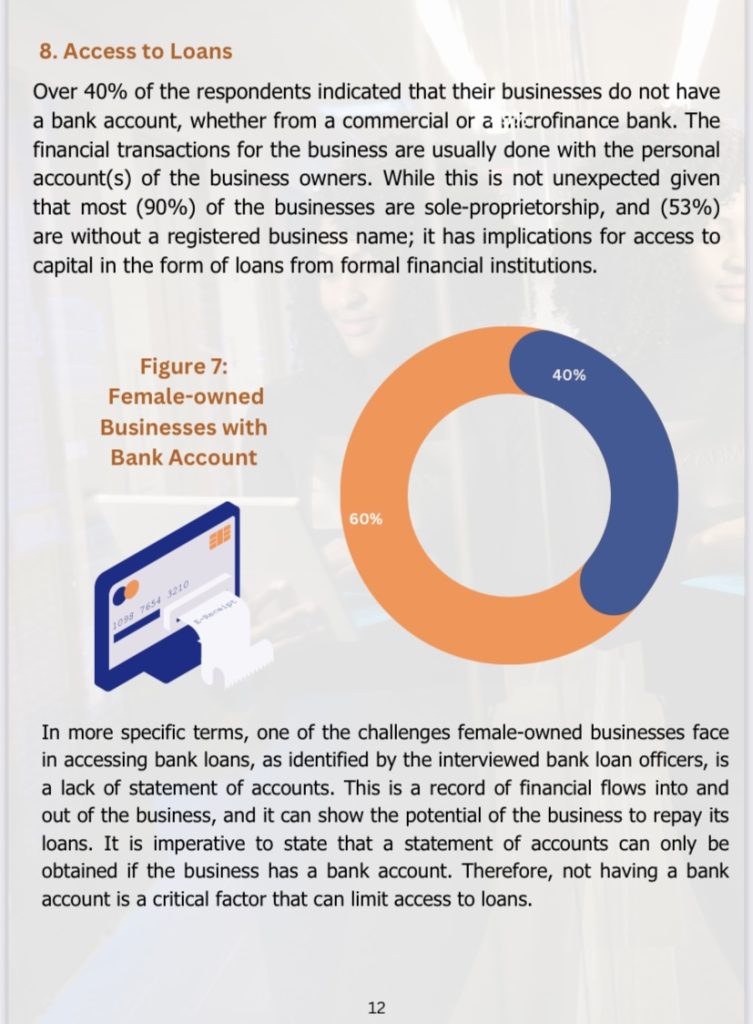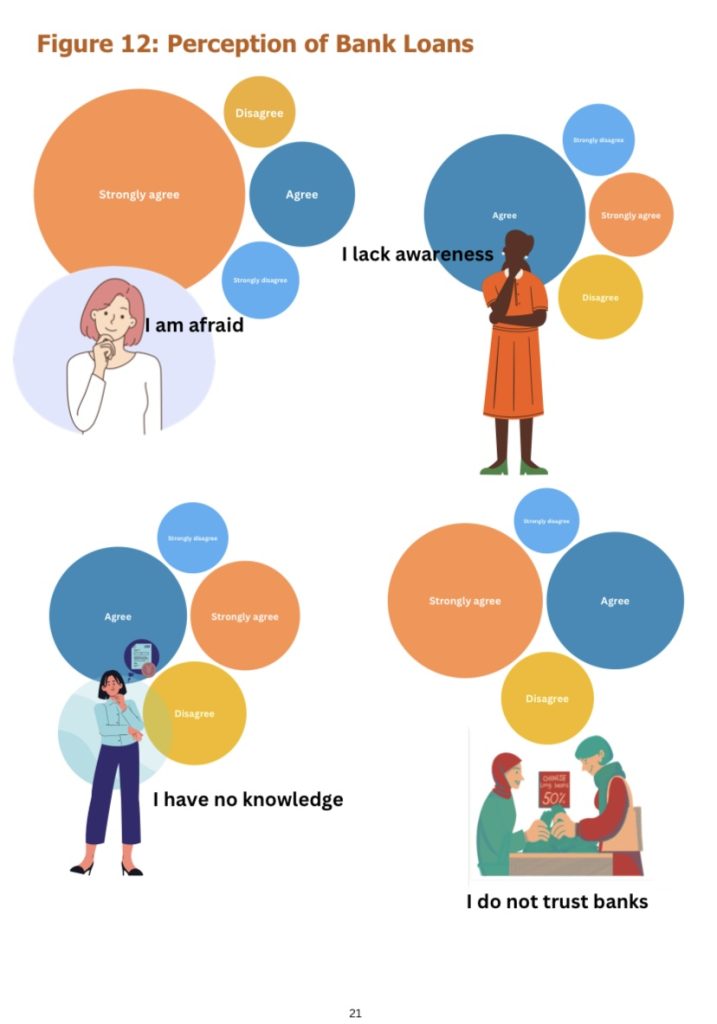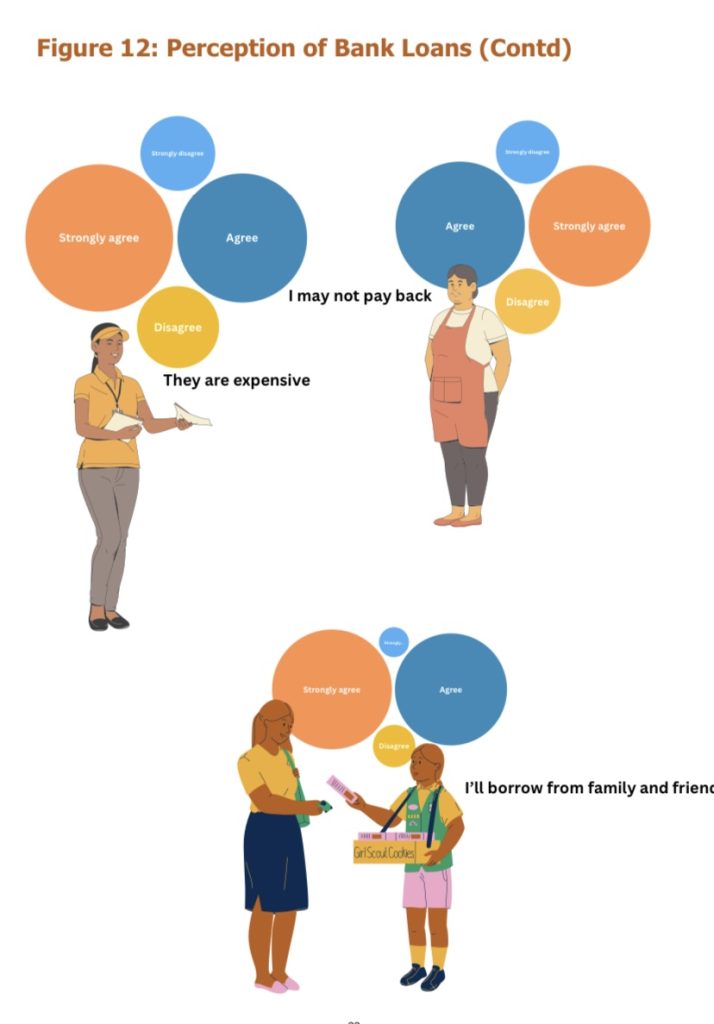
There is a disconnection between the impact that women led businesses contribute to versus the financial and environmental support that Small Medium Enterprises (SMEs) have access to in Nigeria. While data, reports and research speak to the high number of women in SMEs industries in Nigeria business environment compared to other global economies and the GDP contribution, women are still limited by social and economic norms to access funding to start up, scale and sustain their ventures.
HEIR Women Hub survey findings from the project title – Addressing the factors that limit Economic Justice supported by African Women Development Fund (AWDF) in accessing loans for young women in businesses, the data spoke to the issues around not having business bank accounts due to many intersections of social perceptions such as lack of trust on loans and in Banks lending practices, financial illiteracy, business education and information scarcity on where these loans are being dispersed. To this date, the Bank of Industry (BOI) are an organization targeting the important areas of business funding for SMEs in Nigeria, at the time of this article, I have not yet been responded to for survey outcome validation discussions.



Recently, a government agency – Small and Medium Enterprises Development Agency of Nigeria tasked with the support, development, growth and promotion of SMEs in Nigeria, SMEDAN embarked on a partnership with Sterling Bank to make available a loan access facility worth five billion naira to enable more access to loans. The Financial Institution has said on their website that SME with a clean credit record, a registered business, and ongoing operations, will be eligible for a fully digital, collateral-free loan facility. This loan is a launchpad for growth and can be scaled if the lender performs well. While there’s zero collateral, the interest rates a single digit compared to the norm of double digit high interest rates women in SMEs are held to. SMEDAN extended the reach and set up a “Women and Youth Desk” domiciled at the Ministry of Women Affairs to support in the access and information required for women led businesses to take on the opportunity to access funding programs from SMEDAN. This is an important move by the Director General/Chief Executive Officer (DG/CEO), Charles Odili and his team. Mr Odili coming from a background of SME and supporting the business environment, understands the many limitations the Nigerian environment manifest that stifles business growth. He is committed to coordinate efforts to democratize access to finance for women, provide tailored training, and ensure proportionate inclusion in all SMEDAN programmes.
First City Monument Bank (FCMB), aims at supporting female led businesses with the She Ventures Initiative. The partnership with Bank of Industry called “FCMB BOI GENDER LOAN” has a double digit interest rate of 16% to loans of up to One hundred million Naira (Ts&Cs apply). The Zero Interest Loan also available has a more limited fund pot and shorter term repayment plan. She Ventures by FCMB has committed to mentoring female business owners on their SME journey.
There’s still a business development and financial literacy education gap in orientation of start ups and scaling sustainable businesses in Nigeria. While these loans can be a way to support women in businesses, there are factors that still limit Economic Justice such as CAC registration, Tax, Human Capacity, Resources, Security, NAFDAC, Advertising Agency Fees, and then Leadership. Nigeria has more to do, to show accountability and commitment to give women, and push benefit realisation and economic advantage women led businesses bring. The social norms and expectations of women in Nigeria and the economics of Care, are areas that require addressing and long term interventions.
At the time of publishing this article, 200,000 SMEs have shown interest through application to the SMEDAN/STERLING BANK N5 Billion Naira Loan. In all of this programs by SMEDAN and FCMB, it will be good to account for the number of women led business that get their loan applications approved by Sterling Bank and FCMB initiatives. Worth adding that the rural women and marginalised groups require a critical evaluation of what intervention serves them to ensure inclusion and an equitable Economic Justice for all.
Añuli Aniebo
